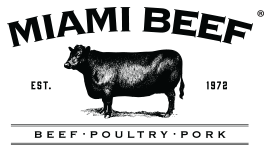

Traceability in Meat Products Matters for Business and Consumers
Food product recalls, and the increased instances of problems with listeria, E. coli and other pathogens in both fresh produce and the processed meat industry, have brought increasing focus to the importance of traceability. When a recall happens, it can impact grocery and retail stores, restaurants and institutions who rely on the same suppliers.
The ability to be able to trace meat to its source is important to quality assurance, but also from a public health perspective. In instances where a foodborne illness has occurred health regulators must do the investigative work to identify the source of contagion or health issue, and they have to do it quickly to isolate and then recall all products that may have been impacted to prevent further outbreak.
In this article our quality assurance team would like to share some of the protocols and steps that we have in place to ensure the safety of the meat products we provide to our wholesale customers.
- Beef Is Tagged Prior to Slaughter
Each animal is identified on the farm, as part of new traceability requirements for food safety. The tag is fastened to the ear of the animal with an identification number. When the animal is transported for slaughter, that unique identification code moves with the meat from slaughter, to processing.
- Raw Meat Retains Unique Identification
During the processing phase, the unique identifier is recorded in lots, where the meat retains identifying data, that can be used to trace the meat and subsequent cuts back to the supplier, who retains information on the farm and original source of the animal.
How Miami Beef® Protects the Food Safety of Our Products
Food safety and quality is our priority, at Miami Beef. Our processing facility is a USDA Regulated Headquarter Plant, with state-of-the-art technology and designed from the ground up, to provide safe food handling, from raw material delivery to final wholesale and private-label branded products. We track and trace all raw materials from storage to production and shipping, to ensure that we can provide finished products with information essential to producing the safest high-quality meat products. Our productions rooms, freezers, coolers and dock are temperature maintained and electronically monitored for temperature control, 24 hours a day, and 365 days a year.
Our professional quality assurance team is led by microbiologists, who routinely conduct laboratory testing of our meat products, at all stages of processing. Our quality assurance personnel also evaluate nutritional content and test for microbiological pathogens, throughout our processing and order fulfillment procedure. We provide our employees with Good Manufacturing Practice (GMP) training, to ensure that every member of our team is handling raw materials safely. Our technology screens finished products for metal detection and bone fragments, to assure the highest quality of meat to our customers.
And because we know food safety is a top priority for our business and our customers, we also arrange for third party regulatory audits of our GMP, hygiene and food safety systems on a regular basis. These industry experts and consultants help us to constantly improve our product, from raw material handling to finished wholesale and consumer goods, in adherence to HAACP guidelines. So, when we say that Miami Beef® is committed to providing quality, safe and nutritionally sound meat products for our customers, now you know a little more about what goes on behind the scenes, every hour of the day, to make good on our promise.
For over fifty years, Miami Beef® has been innovating quality hand-cut chops and steaks, hamburgers, turkey, veal and other meat products for the food service industry. We work only with trusted suppliers we have known for decades, as part of our quality assurance process.
We invite you to contact our sales team, to learn more about making Miami Beef® your partner in quality meat and nutritious, healthy meals for your customers.
